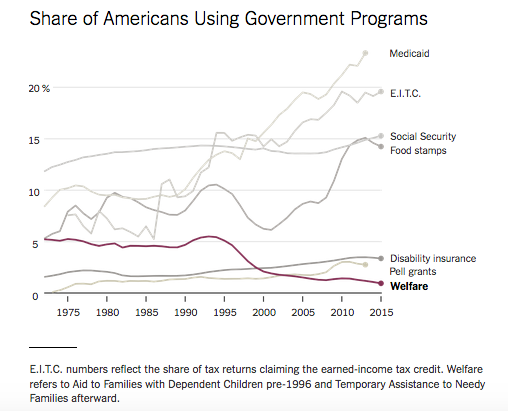The federal program known as welfare delivers cash assistance to less than 1 percent of the United States population. This is far smaller than the share of those aided by food stamps, or by other government support like disability benefits, unemployment insurance, college grants and medical benefits.
But none of those other social programs have captured the public imagination or pervaded American politics as thoroughly as welfare, a piece of the safety net that helps about 2.5 million people. Its outsize influence has remained — and could soon become larger — even as the program itself has shrunk to its smallest size.
Unexpected evidence of this emerges in the research of Suzanne Mettler, a political scientist at Cornell University perplexed by the trends that Americans have come to dislike government more and more, even as they have increasingly relied on its assistance through programs other than welfare. Americans are far less likely today than 40 years ago to say in surveys that they trust the government to do what is right or to look out for people like them. At the same time, the share of Americans using nearly all of these other programs has risen.




